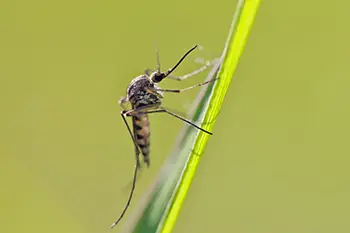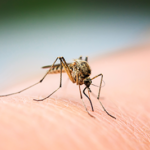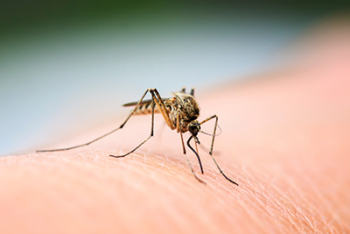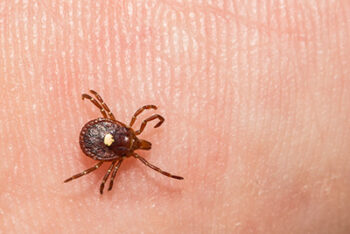
Eastern Equine Encephalitis (EEE) is a mosquito-borne illness that originates in horses and can transfer to humans. It is a rare illness, with an average of 11 cases per year in the US. Even though it’s very rare, it’s also very serious.
There have been 13 cases of EEE reported in the US in 2024, with one case occurring in New Jersey. Since EEE spreads to people via mosquitoes, mosquito extermination is an important part of keeping this disease under control. Read on to learn more about this disease and how the Eastern Pest Services team can help keep mosquito numbers down.
What Are the Symptoms of EEE?
The EEE virus generally produces flu-like symptoms in infected people. The following symptoms may develop between four to ten days after a person is bitten by a carrier mosquito:
- Fever
- Vomiting
- Muscle and joint pain
- Fatigue
Rarely, serious symptoms like disorientation, seizures, or coma may occur. EEE causes brain swelling, a severe complication that can lead to death. If you experience any of these rare symptoms, seek medical attention immediately.
Who is At Risk for EEE?
EEE is usually found in the eastern and Gulf Coast areas of the US, as well as parts of Canada and South America. The most high-risk age groups are those above 50 and below 15 years old. Infected mosquitoes have been identified in New Jersey, so the CDC has defined certain counties as at-risk areas.
There is only a 5% chance of developing EEE if you are bitten by a carrier mosquito, but a 33% mortality rate if you develop the disease. For that reason, it is critical that you seek medical attention if you suspect you have EEE.
Is There a Treatment for EEE?
EEE has no specific cure. Vaccines exist for horses, but not for people. Supportive treatments such as IV fluids and respiratory support are provided in hospitals, but there is no antiviral treatment for the disease. This is why early detection and prompt action – as well as mosquito control efforts – are so important.
How Does EEE Spread?
EEE is only spread to people via infected mosquitoes. The Culiseta melanura mosquito is primarily responsible for transmitting the disease from birds to people. It cannot be transmitted directly from person to person, or from horses to people. That’s what makes mosquito control so important in the fight against EEE; they are the only transmission vector from horses to humans.
How Can I Protect Myself From EEE?
An important part of protecting yourself from EEE infection is to use professional mosquito abatement services to reduce the mosquito population in your area. As we’ve mentioned, this disease is extremely rare, so it’s important not to panic; keep calm, observe any local recommendations from the CDC, and call Eastern Pest Services for mosquito prevention services.
Count on Eastern Pest Services for Mosquito Control Services
Mosquitoes aren’t just annoying – they can carry diseases between people over long distances. While it’s rare for someone in the US to contract a mosquito-borne illness, it’s still possible. That’s where mosquito control services from Eastern Pest Services come in handy. If you’re concerned about mosquitos in your area, don’t hesitate to call us.
Get in touch today to get started with a free, no-obligation quote!




